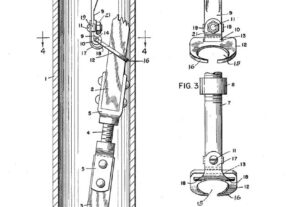If you’re in the manufacturing industry, you know how crucial it is to have the right tools. And when it comes to precision machining, conical tools are a game-changer. These specialized cutting tools are designed to produce accurate, smooth finishes on various materials such as steel, aluminum, and composites.
A conical tool is a type of end mill that has a cone-shaped cutting edge. It features a tapered design that gradually narrows towards the tip, allowing it to create intricate shapes with ease. This unique shape also reduces the chances of deflection or chatter during use, ensuring greater accuracy and precision.
In this article, we’ll dive deeper into what makes conical tools an excellent choice for precision machining and explore their advantages over other types of cutting tools.
Why Choose Conical Tools?
When it comes to machining parts with intricate geometries or tight tolerances, conical tools offer a range of benefits that make them stand out from other types of cutting tools.
1. Improved Surface Finish
One of the main advantages of using conical tools is their ability to produce superior surface finishes. Due to their unique geometry, they can achieve smoother finishes with fewer passes compared to traditional flat end mills.
The tapered design of conical tools allows for more efficient chip evacuation, reducing the risk of clogging and resulting in less heat buildup. This helps to prevent workpiece damage and prolongs tool life while producing high-quality finishes.
2. Reduced Chatter and Vibration
Another significant advantage of using conical tools is their reduced chatter and vibration during operation. Because they are less prone to deflection than flat end mills, they can cut through materials with greater stability and accuracy.
This stability results in less tool wear, improved surface finish quality, and increased productivity overall.
3. Versatility
Conical tools can be used for a wide range of applications, making them a versatile choice for precision machining. They are suitable for cutting various materials such as steel, aluminum, composites, and plastics.
Moreover, conical tools can produce different types of cuts, including chamfers, tapers, and angled grooves. This makes them an ideal option for complex geometries that require precise cuts.
4. Cost-Effective
Conical tools may seem like an expensive investment at first glance. However, their long tool life and superior performance make them a cost-effective solution in the long run.
Due to their reduced chatter and vibration during operation, they cut through materials more efficiently, resulting in less wear and tear on the tool itself. Additionally, their specialized geometry allows them to create smoother finishes in fewer passes than other types of end mills.
Overall, this means that you’ll need to replace your conical tools less frequently than other types of cutting tools, ultimately saving you money over time.
Tips for Choosing the Right Conical Tool
When choosing a conical tool for your precision machining needs, there are several factors to consider.
1. Material Type
Different materials require different types of cutting tools. For example, you’ll need a different type of conical tool to cut through steel compared to composites or plastics.
Be sure to choose a tool that is designed specifically for the material you’re working with to ensure optimal performance and longevity.
2. Cutting Speeds and Feeds
The cutting speed and feed rate also play a crucial role in achieving optimal results when using a conical tool. These parameters affect the amount of heat generated during cutting and help determine how quickly chips are evacuated from the workpiece.
Consult with your tool supplier or machine manufacturer to determine the best cutting speeds and feeds for your specific application.
3. Tool Coating
Tool coatings can significantly impact the performance and longevity of a conical tool. Different coatings offer varying levels of wear resistance and can help reduce friction and heat buildup during cutting.
Consider choosing a tool with a high-performance coating such as titanium nitride or diamond-like carbon to ensure the best possible results.
Conclusion
Conical tools are an excellent choice for precision machining due to their unique geometry, reduced chatter and vibration, versatility, and cost-effectiveness. When choosing a conical tool, be sure to consider factors such as material type, cutting speeds and feeds, and tool coating to achieve optimal results.
Whether you’re working on complex geometries or tight tolerances, a conical tool can help you achieve the precision cuts you need for your manufacturing needs.
References:
1. “Conical Tool – What is it?” by Harvey Performance Company
2. “Selecting the Right Cutting Tool for Precision Machining” by American Machinist
3. “Tapered End Mills vs. Straight End Mills: What’s the Difference?” by In The Loupe Turning Solutions
4. “The Advantages of Conical End Mills” by DATRON Dynamics Inc.
5. “Milling Process, Defects, Equipment” by CustomPartNet




